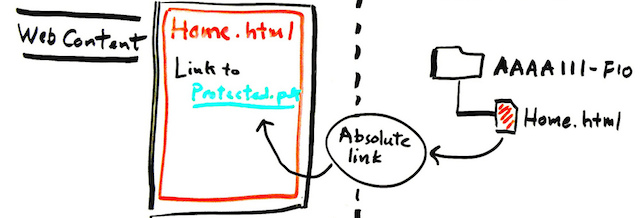As a publisher of multiple sites (and a reader, no less), I’m keenly aware of the struggle faced by the need to reach users, but the cost of doing it. If what we do doesn’t somehow lead back to our site, is this something we could ever embrace? With the recent announcement of Facebook Instant Articles, I’ve been thinking about this more. Is this a great development for publishers, or the start of a new, dangerous path for Facebook?
I talk about whether it makes sense to move to HTTPS, even if your site doesn’t sell products or take in user data.
There is a real sense that sites of all shapes and sizes are moving away from commenting systems. I’m seeing comment systems that have been reduced to identity verifiers that allow users to enter text-only when the web itself allows so much more. This had me thinking, how could we remake the entire idea of commenting on blogs (and the web in general). I have an idea of how we can save them.
While working to move this site to using encryption, I have come across another painful reminder of how inadequate the Facebook comments plugin really is. When changing the url (and ultimately the domain) of this site from http://cwl.cc to https://cwl.cc Facebook doesn’t handle the change very well. What I’m left with is losing another swath of great comments and thinking of a fix.
As a blog that runs on WordPress, this site is bound to the glorious options that are presented by this tool; but also many of the limitations. I’ve worked with WordPress in a number of ways, but one that seems to be most tricky is its internal linking. Out of the box, WordPress won’t offer you the ability to show internal elements (such as images) with a relative URL.
With the rise of tools catering to ever-shorter attention spans, it would appear more like bloggers are lured by new and shiny tools. These tools are prettier and faster to use, so, naturally, bloggers are taking advantage of them (over traditional long-form writing). But, are bloggers bored?
It didn’t hit me right away, but I realized that doing what I do here isn’t exactly looked at as the “right” path for an aspiring business owner. Or, is it?
The guest blog request, and the subsequent posts, are used to build links from a more popular site to a less popular one, in an effort to gain traction with a search engine. Google appears ready to clamp down on this practice. Here’s what I think of the practice.
I read countless blog articles throughout the year, and enjoy it when I find great stuff to read. This is my favourite blog of 2013.
Not long ago, TheNextWeb reported on a new idea from Digg founder Kevin Rose. This idea; Tiny is an idea for a new blogging platform. While Tiny doesn’t seem to be real yet, the YouTube video included gave us a glimpse of what it might look like.










